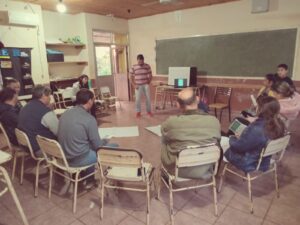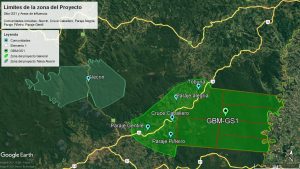Communities: the importance of working together to preserve native forests
At Nideport, on the watch to generating a beneficial impact both on local communities and on the progress of the initiative, a sustainable development plan was established. In its first stage, the recognition of the territory and surrounding communities was carried out.
The creation of protected areas is not always determined by technical and/or environmental criteria, which undermines their effectiveness in protecting local biodiversity. The objective of this report was to verify the potential of the protected area and its impact on local communities.
For decades, to make room for livestock and crops, indigenous villages have been taken, trees have been felled and land has been burned, producing ashes that act as a nutrient for new crops to grow.
To reduce the carbon footprint and absorb surplus amounts of CO2 retained in the atmosphere, reforestation experts say it is not as simple as planting millions of trees as quickly as possible. Therefore, this situation is more complex than simple reasoning implies.
These incessant practices and the consequences they cause on a global scale motivated the Nideport initiative. The project reinforces its commitment to the environment and aims to implement a sustainable action plan.
According to scientific studies aimed at fighting against climate change, the task of protecting existing forests and jungles is a priority. To successfully carry out this mission, it is essential to involve local communities.
Native people of these lands suffer the consequences of deforestation and degradation of their forests due to the economic activities that take place in them.
At Nideport, on the watch to generating a beneficial impact both on local communities and on the progress of the initiative, a sustainable development plan was established. In its first stage, the recognition of the territory and surrounding communities was carried out.
The proposed goal is to improve local living conditions and promote the conservation of species (animals and plants).
Due to the abundant knowledge of the forests that local communities have, this project seeks to nourish itself from the synergy of working together promoting a sustainable change for the lives of all.

For the fieldwork, an interdisciplinary team was formed that carried out a social and economic approach to the area. In-depth interviews were conducted with different actors.
Residents, mate growers, cooperatives, forestry engineers, academics, public officials, members of non-profit organizations, were interviewed, highlighting local needs and the potential impact that the preservation project site would generate.
The main objective of this report was to carry out a survey and a social/economic assessment of the department of San Pedro (Misiones).
The conversations held with the chiefs of different Mbya-Guaraní communities were highly rich. During these interviews, some sociodemographic data were updated, information on land ownership of certain communities was revised, all the communities were cartographically updated, and some territorial points of interest were geolocated.
Sightseeing tours of the town were also carried out. Cultural, Historical and Touristic sites of interest such as provincial parks, towns and neighbouring colonies were recognized. All these actions were carried out with the purpose to know the productive profile of the town and its environment.

In tune with Nideport’s project and the motivations that drive it, it was agreed with the chiefs to initiate a path of dialogue and mutual knowledge, while they started to talk about the identification of needs and their priorities.
#localcommunities #environment #forests #Nideportinitiative #report






